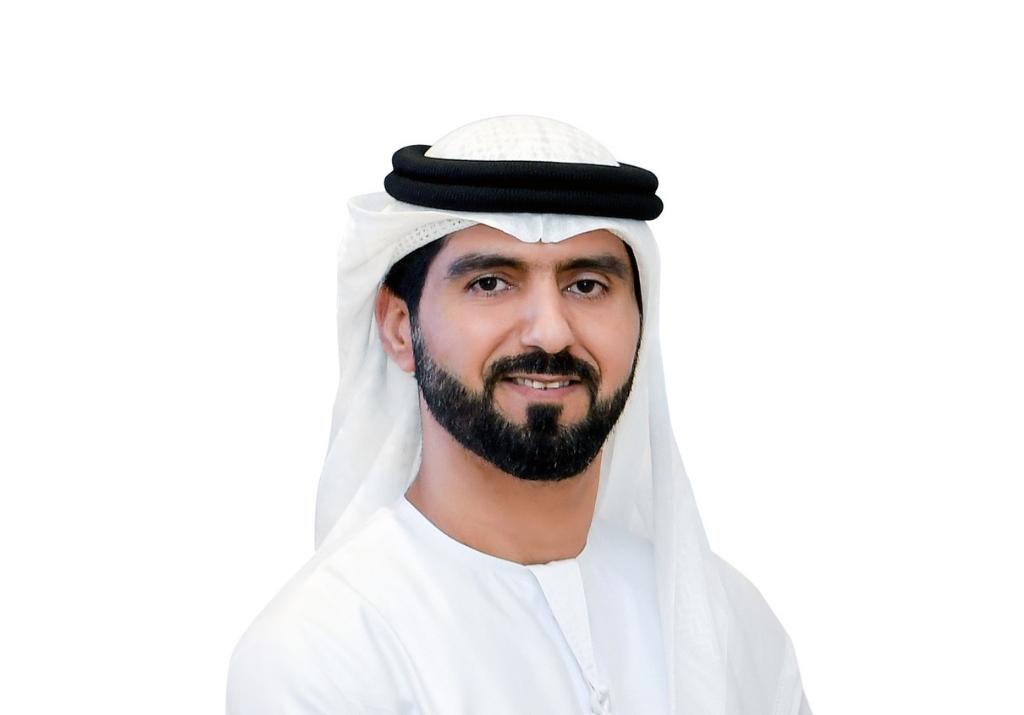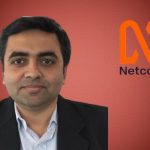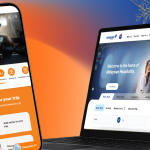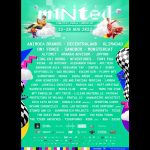By Mark Tungate
Promoting the Emirates as a brand is just part of Khaled AlShehhi’s role as executive director of marketing and communications at the UAE Government Media Office. He took time out to tell us how he works with the region’s best agencies to develop award-winning campaigns.
How would you describe in a nutshell your role at the UAE Government Media Office? Are you responsible for promoting the image of the region, or is it far broader than that?
I have a dual role: at the UAE Government Media Office, my team and I ensure the strategic communication needs of the government are met, helping it communicate with its domestic and international audiences on a broad range of challenges and initiatives. This includes working on the Emirates’ nation brand. We’re particularly focused on soft power and public diplomacy strategies, managing the visual media identity, and managing media campaigns for strategic national projects and official events.
At the Mohammed Bin Rashid Al Maktoum Global Initiatives [launched in 2015 by the ruler of Dubai], we ensure the success of philanthropic and developmental campaigns through smart media ideas and activations. We’re behind some of the most awarded media campaigns in the region in the last three years.
What would you say are the values of the UAE as a brand?
The UAE is a global hub and a main gate for the region. First, it is a melting pot of cultures, a meeting point for ideas and ambitions, and a destination to live and work in. People of diverse cultural and ethnic backgrounds come together to build and strengthen the Emirates’ unique global identity.
It is also a land of opportunities, providing an attractive environment for innovators and entrepreneurs from all over the world. As a global trade and financial centre, it makes dreams possible. It is those dreams that have given the UAE its futuristic vision and culture of innovation. It is a pioneer of the future, with programmes and projects designed to bring about a better future for its people and the world.
The way the UAE has flourished in a desert is proof that its culture of possibilities works. Embodied in its motto, “Impossible Is Possible”, this culture has freed talent, resources and energy into an amazing transformative power. The country’s goal is happiness, the basis of well-being and social cohesion, and wants to spread it far and wide as a beacon of hope and positive change in the region. Through tolerance and openness, as well as philanthropy, the UAE works towards a better future.
I notice that you come from an IT and technology background. Why did you choose that path as a young man and where did you study?
My IT education took place in the UAE at the Khalifa University. That choice was natural as I was always good with science and maths. Fascinated by technology and what it made possible, I felt it would give me an opportunity to shape the future in some way.
I have since added to this education with management and leadership programmes from the Mohammed Bin Rashid Centre for Leadership Development, IMD, Imperial College Business School, Haas School of Business at the University of California, Berkeley. I also have a Master of Laws from Paris II University.
You worked for ten years at Etisalat. How did you transition from telecommunications into marketing?
In my decade at the UAE telco, I progressed from the technology department to engineering to provide ICT solutions to enterprise customers. There, I was directly involved in the product life cycle, from development to marketing and sales. This is where I started developing a customer-oriented approach to sell a product, service, or idea. I was also involved in the setting up of a greenfield telecommunication company in Nigeria, leading to the smooth and successful launch of Etisalat’s GSM services there. I learned a lot in that time and this opened my mind to other opportunities.
In 2015, I found the right one and joined the Public Diplomacy Office (PDO) as Director of the Digital Communication Department, working on national projects for the UAE Government and the Mohammed bin Rashid Al Maktoum Global Initiatives (MBRGI) in addition to the World Government Summit. What drew me to the PDO was the opportunity to develop a creative idea that would inspire, motivate, uplift, and persuade people on a larger scale – in other words, the chance to have a greater impact.
In your current role I imagine you work with a variety of different agencies. What process do you use to pick your agency partners? And how important is the emotional and relationship element of collaboration to you?
Between the UAE Government Media Office and the Mohammed bin Rashid Al Maktoum Global Initiatives (MBRGI), we work with over 20 agencies overall for advertising, media, PR, Digital and experimental.
We allocate projects to individual agencies based on a number of criteria, their ideas, past and present, their ability to deliver on time and on budget, and, in many cases, we have more than one agency per campaign, depending on what’s needed.
My job, with my team, is to align all these partners on our goals and objectives, synchronize strategies, coordinate their activities and synergize their performance. Some think agencies from different holding groups will be more combative than collaborative, with the ambition to walk away with a bigger slice of the pie. This hasn’t been our experience.
I choose partners who get it, are responsive and fast, from idea generation to execution. We live in the moment, in a dynamic and restless world. The competition for attention is fierce, when attention spans keep getting shorter. There is no time to waste to identify the right trigger, craft the idea and spark the interest. I work with partners who share our vision and understand our ambition. We have big dreams and don’t let anything get in our way: time, resources, budgets, when there’s a will, there is a way to remove any obstacles. You can tell partners who are driven by creativity and those by profitability. Guess which ones I want to work with?
We believe we deserve and can achieve world-class, gold standard work that will warrant global attention. Our relationship with our partners is based on trust. Nothing else matters, certainly not egos, we’re all in this together, collaborating to get the best work that will get the best results. Remember, we’re not selling a product or service for profit, we’re promoting change, hope, success, we’re making the future possible. This is a laudable goal.
Of the numerous award-winning projects you’ve been involved in, what was your proudest moment and why?
There is a special place in my heart for the World’s Tallest Donation Box. It is a truly awe-inspiring campaign and idea: to sell each LED light on the façade of the Burj Khalifa, the tallest building in the world, to raise money for the MBRGI’s 10 Million Meals campaign. Each one of the 1.2 million lights was sold, providing 1.2 million meals to people directly or indirectly affected by the COVID-19 outbreak across the country. This shining display of social solidarity and cohesion brought hope and smiles to people who needed it the most.
The mechanics were simple: institutions, companies and the general public could buy a light for 10 AED ($2.7) and provide one meal. The results were stunningly visible on the skyscraper and the 1.2 million lights turned it into a beacon of generosity. This got global attention and the media around the world featured the story and images of Burj Khalifa powered by kindness. This is marketing as a force for good.
This campaign has been a massive success, providing meals for the needy, positive PR for Dubai, contributing to building the nation brand, and gaining an impressive number of awards (70 in total).

What would you say is the region’s creative hub? Dubai is often regarded as creative architecturally, but I have a feeling there’s more to the story than that.
While Dubai and the UAE are home to stunning architectural breakthroughs, like the Museum of the Future or the Burj Khalifa, to be deserving of the description of creativity hub, innovation needs to run much deeper. The Emirates have focused on innovation for years across multiple facets of the economy, policies, culture and life. We’ve made the move towards the knowledge economy, investing in education and talent, R&D, technologies. As well as encouraging high-value sectors such as data and analytics, we’ve also supported creative industries. This attracts entrepreneurs, investors and talent.
The result is a vibrant and thriving ecosystem that feeds our creativity and stimulates innovation. In advertising terms, this means international awards and recognition. More and more of our region’s work gets presented and awarded in international festivals, so much so that the Cresta have named the Middle East as last year’s recipient of their President’s Award. The UAE ranked sixth at the 2021 One Show. The UAE and Lebanon, two small countries in population terms, have both been in the top 20 in the WARC Ranking of the 100 most creative countries since 2020, with the UAE in the top 10 since last year.

You recently wrote an article about your love of physically demanding, sports-based vacations – rather than lounging on a beach – particularly Spartan races. In what other ways do you challenge yourself during your daily life? And do you have any self-help tips for those of us who are tempted to be lazy?
Keeping everything in balance, across all aspects of your life, is a daily challenge. I strive to maintain healthy and rich relationships everywhere, at home, with relatives, friends, colleagues, business partners and indeed wider communities and networks. This requires meticulous planning but it’s certainly worth the effort, even it means long, demanding days.
To get the energy and drive to achieve bigger goals, it’s a good idea to break them down into smaller manageable intermediary steps that won’t overwhelm you. If the pandemic has brought anything into a much sharper focus than before, it’s the importance of mental health and being kind to ourselves. Negative self-talk adds to your inertia whereas positive self-talk will empower you and spur you on. Trust me, in obstacle races, this makes all the difference. Another tip is to stay focused and avoid distractions. The trick is to make these less readily accessible. It could be by putting physical distance between you and your phone, or using technology to block apps, there are ways to stay on task.
These are some of the tips I use but there are many more. The role of diet and lifestyle is not to be underestimated either.

What career advice would you give to a new college graduate who is interested in working in marketing?
You need to be strong in both creativity and effectiveness as both are equally important to marketing success. If you can’t be both yourself, you need to surround yourself with trusted people who complement you. You can also train to be stronger in both, understanding all the levers of creativity and effectiveness. Study successful campaigns and learn what made them different.
MARKETING Magazine is not responsible for the content of external sites.











